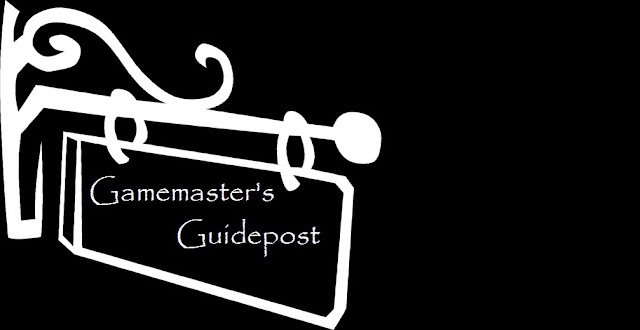Pacing game sessions is hard. It’s not something a GM can (usually) do without learning from experience. You need to have ran multiple game sessions before you get in the RPGroove. Some lucky GMs pick it up easily, but let’s face it, for most of us, it’s something we learned. But fear not ye newb GMs! I’ve got a few tips that can help you:
- First, be mindful of your players. Know which one of them require the most attention and those that require the least. Beware spotlight hogs for, lo, they can ruin your game. The best method I have found is to take the number of players you have and divide them into 1 hour. Then keep an eye on the time, giving each player their own slice of time. Add individual times together when you’re dealing with characters who are doing the same thing/are in the same scene. If all your players are in the same scene, don’t add the time up. Just go from players to player giving them as much equal time as you possibly can. For example, if I have 4 players, then I’ll try to give each one 15 minutes of undivided attention. I personally use a on-screen timer on my laptop (which I also use to monitor things like the Luck advantage). It’s not always perfect, and you’re going to need to adjust the amount of time depending on the player, but after a while you’ll get it.
- Second, be mindful of your player’s characters. Ogg the Smasher and Igg the Talker are both going to eat up time in their own way, let them do it. If Ogg’s player wants to reference some rules books to see what his character can do in combat, be lenient. Ditto for Igg the Talker. In short – let your players play their characters as their traits dictate. That doesn’t mean that Ogg’s player gets to spend 10 minutes looking up combat rules. Be nice, but be firm. You’re players will love you for that later on.
- Third, time your session. Most GMs I know at least sketch out what they have planned for a game session. Most combat in GURPS is going to take at least a hour, everything else you’re going to have to figure out on your own. A good guideline is to set aside the same amount of time for non-combat actions as you do for combat. So if you have two combats planned, try to make sure the non-combat stuff takes at least two hours. This isn’t going to work for all GMs and players. Some GMs have little or no combat in their games, others are nothing but bloody battles with time to heal in between. This is okay! There is no wrong way to run a game unless you and the players are unhappy and not having fun.
- Four, be prepared to think on your feet. Personally, as a GM, I’m better when I move (that’s right, I just made a Butch and Sundance joke, deal with it). Some GMs are improv GMs (they pull everything out of their proverbial rear ends), others are planner GMs (they’ve written it all down, ALL THE WORDS). Most of us fall somewhere in between. For example, I write between 10 to 50 pages of setting material for my players, mostly on character creation. And I sketch out the world and all the major events that have happened. In that regard, I’m a super-plan-y-OCD-GM. But when I start running the game…not so much. It’s better for me to come up with what needs to be done on the fly and go from there. I do sketch out an overall campaign story arc and then break it into segments (i.e., game sessions).
- Five, create a story arc, and then stick to it. This can be as simple as “Grimwald the Great is invading the South Colonies, but he’s sending spies and soldiers in dressed as bandits first.” That one sentence right there is so pregnant with possibilities that it must be a cat and you’re about to get a whole bunch of fluffy kittens. Stick to the plan. Modify it as you need to. No game plan survives the first encounter with your players.
- Six, KEEP NOTES. I don’t care if it’s just scribbles on napkins, but keep some sort of notes for your game. This will let you pace your game sessions and help you keep a overall big picture.
- Seven, Ignore everything I’ve written here if it isn’t fun for you or your players. You’re the GM, you set the rules. If your games are a novel, then you’re just the Editor and your players the writers. Bill Stoddard once said something I’ve found to be so fundamentally true that I tell it to every new GM I meet: Role-playing is collaborative storytelling. Think about that for a minute. You’re all telling a single story with multiple narratives. As the GM you are responsible for weaving those narratives into a complete whole. The GM is not telling the story, or at least not all of it – the players are.
So there is what I’ve learned in the past twenty odd years. Hope you find it helpful.

